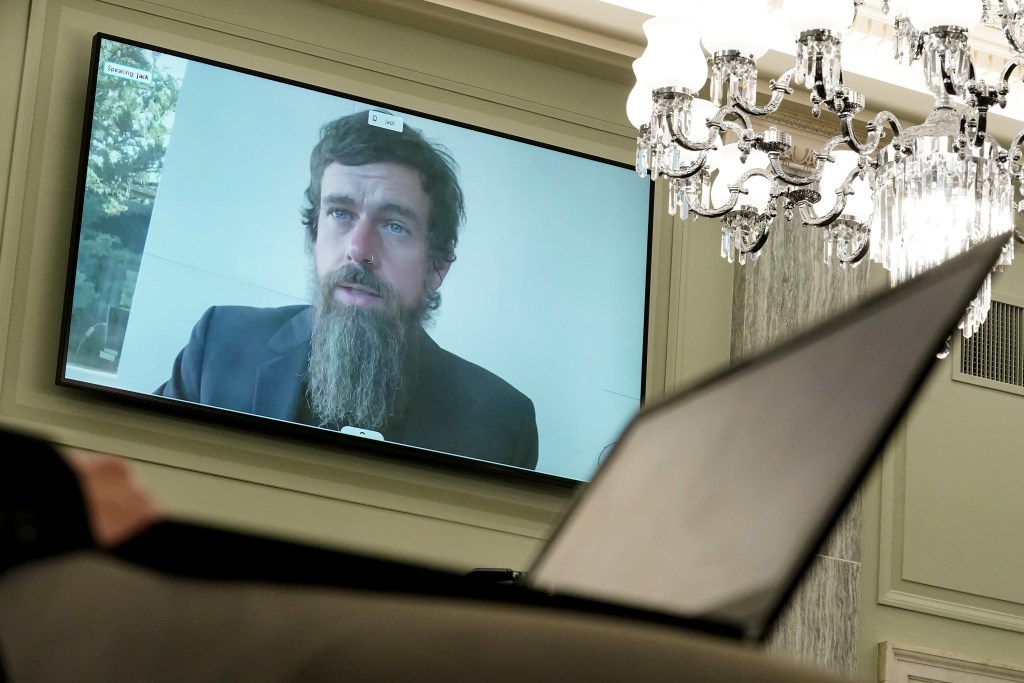Using down articles is not censorship. It is small business.
On the demonstrate not too long ago, I talked about tech providers and social media platforms regulating speech — banning President Donald Trump and other accounts, getting rid of groups and subjects and even booting Parler off of app shops and Amazon world wide web internet hosting. And of system, there is been a great deal of backlash and claims of censorship and issues about regardless of whether speech on social media need to be controlled by the governing administration.
All of that gets us to a subject that’s worth revisiting appropriate now, which is the First Modification. I spoke with Berin Szóka, the president of the nonprofit TechFreedom. He says, initially of all, we have to get our vocabulary suitable. The pursuing is an edited transcript of our discussion.
Berin Szóka: When Fb bans anyone, that’s not censorship. Censorship is when the govt will make a private corporation take anything down — time period, conclusion of tale. So we seriously require to halt employing that phrase in that wide way. But if you want to have social media, and you want to have it moderated responsibly, you require Section 230 [of the Communications Decency Act] to do both of those points: to shield from lawsuits for internet hosting written content but also be certain that internet websites can choose down egregious articles. Which is what is authorized the web to create, and it’s not excellent, but that is just how speech is, and we cannot regulate the issues folks are complaining about for the reason that of the Very first Modification.
Molly Wood: One other wrinkle that I locate attention-grabbing, nevertheless, is this dilemma of competitiveness. And a person of the problems about, for illustration, Parler becoming kicked off of the Apple App Retailer is that it also decreases competitors.
Szóka: Antitrust regulation doesn’t secure non-public media businesses from abusing their current market ability in economic means. But the To start with Modification does defend private media businesses when they make editorial decisions about what sort of material they want to host. So Google, Amazon, Apple, they are 100% in just their To start with Amendment rights to refuse to do enterprise with a corporation that lets its users to incite murder and that allows its consumers to disseminate visuals of children being sexually abused.
Wooden: Really should we have any worry about platforms abusing that kind of legal correct in the long term, however, to remove levels of competition? Or do you think this circumstance is fairly contained?
Szóka: I’m not saying that you shouldn’t be concerned. I’m saying that the Constitution forbids the federal government from performing nearly anything about this. Seem at the truth that company The usa has slice off the movement of cash to Republicans who refuse to acknowledge the election effects. Carry that form of tension to bear on firms that promote on these services. And these services will, on the a single hand, take higher accountability for really heinous content material on their companies. And then, on the other hand, if you are concerned about these products and services getting much too a great deal electric power, glimpse, these expert services arrive and go. No just one is locked in endlessly. If they do abuse their current market electricity in financial ways, the antitrust rules are however there as a prospective remedy.
Wooden: Ok, so now, this is all very crystal clear from a lawful viewpoint. We do like to overcorrect in this country. And there are discussions about probably enacting despise speech regulation, the Fairness Doctrine coming back again. In which do you believe we are going to go from below as a society, whether or not or not the legal arguments are crystal clear?
Szóka: I imagine Congress could attempt to do some of all those matters. But dislike speech regulation is under no circumstances likely to pass muster underneath the Very first Modification in this place. There is a incredibly confined window for Congress to legislate in ways that the Very first Modification could allow. And the circumstance to seem at in this article is the [Xavier] Alvarez selection, where the court docket most not long ago dealt with false speech. And they ruled that in standard, fake speech is protected by the 1st Modification. And the exceptions they appeared at were for factors like perjury, which undermine the basis of our legal system. I think if you start off with that circumstance, you may possibly be equipped to craft pretty narrow, incredibly specific legal guidelines that could, for instance, prohibit people from misleading voters about the time and location of elections, or whether you can vote on-line — factors like that. That would make a change. But the 1st Modification is in no way going to permit the criminalization or punishment of individuals just falsely professing that the election was stolen. And I really do not like that, you really do not like that, but the 1st Modification is actually hard. And we’re stuck with it except if we can get a constitutional amendment handed.
Wooden: With respect to these major platforms, does it feel like this is, in some strategies, business doing the job as it ought to? Like, they’re evolving to the level wherever it is a company vital to, for illustration, do a little something about the misinformation challenge?
Szóka: Yeah, 100%. Glance, Twitter and Facebook have just the same business design that each newspaper and journal have normally experienced, which is to get advertisers to be willing to set their adverts next to content material, and that contains written content that will come from third functions, just like letters to the editor. Facebook and Google and Twitter have a sturdy incentive to guarantee that their advertisers are cozy with the material on their service. Which is different from Parler. Parler does not care. Parler’s organization product is not to provide advertisements to firms that care whether or not their products and solutions are remaining marketed following to Holocaust denial. Parler’s business product is to promote the opportunity to market place to the craziest folks in The united states despise speech and political advertisements for Republican candidates, and then, points like gold bars and herbal Viagra supplements. That’s essentially the big difference involving Parler and Twitter.
Wooden: So what do you believe happens over the upcoming few of a long time? There is certainly a large amount of rhetoric all-around Part 230, close to various styles of regulation. Do you consider that it is going to be a few of several years of arguing, or do you think some slim regulation might really emerge?
Szóka: I feel Congress is less than huge strain to do anything. The most most likely point they’ll do would be to consider to craft some form of transparency mandate. And they would say, like the [Preventing Animal Cruelty and Torture] Act did in the very last Congress, they would say that they are not hoping to interfere with the selections that companies make. They are just trying to need increased transparency. I fully grasp what they are striving to do, but that raises another established of First Amendment considerations that in essence boil down to this: You simply cannot demand Fox Information to disclose how it decides which attendees to invite you simply cannot pressure The New York Times to make the similar form of disclosure about which op-eds it runs. You cannot, for the exact same explanations, compel social media companies to explain in detail in which the line is on Holocaust denial or racism. So these suggestions, these bipartisan concepts, are perfectly intentioned, but I never feel they will stand up in court docket both.








